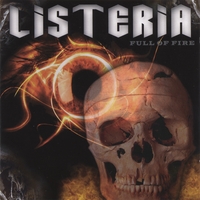As of 19 December 2017, a total of 647 laboratory-confirmed listeriosis cases have been reported to the National Institute for Communicable Diseases (NICD) since 01 January 2017.
 Diagnosis was based most commonly on the isolation of Listeria monocytogenes in blood culture (71%, 459/647), followed by CSF (24%, 156/647). Where age was reported (n=620), ages range from birth to 93 years (median 26 years) and 39% (241/620) are neonates aged ≤28 days . Of neonatal cases, 96% (232/241) had early-onset disease (birth to ≤6 days). Females account for 55% (341/623) of cases where gender is reported.
Diagnosis was based most commonly on the isolation of Listeria monocytogenes in blood culture (71%, 459/647), followed by CSF (24%, 156/647). Where age was reported (n=620), ages range from birth to 93 years (median 26 years) and 39% (241/620) are neonates aged ≤28 days . Of neonatal cases, 96% (232/241) had early-onset disease (birth to ≤6 days). Females account for 55% (341/623) of cases where gender is reported.
As of 19 December 2017, case investigation forms (CIFs) of variable completeness have been received for 229 (35%) cases. Apart from neonates (≤28 days) and the elderly (>65 years), additional risk factors for listeriosis reported include pregnancy (11/47 females aged 15-49 years) and HIV infection status. In non-neonatal cases where HIV status was known (n=117), 37% (43/117) were HIV positive. Maternal HIV status is known for 57 neonatal cases, of which 22/57 (38%) were HIV positive. Final outcome data is available for 20% (131/640) of cases, of which 46% (60/131) died.
To date, whole genome sequencing has been performed on 206 clinical L. monocytogenes isolates. Fifteen sequence types (STs) have been identified; however, 74% (153/206) belong to a single ST (ST6). Isolates in this ST6 cluster are very closely related, showing <20 single nucleotide polymorphism (SNP) differences. This suggests that most cases in this outbreak have had exposure to a widely available, common food type/source
Clinical listeriosis management guidelines are available on the website (www.nicd.ac.za). Where clinicians suspect listeriosis but specimens (including CSF and blood) are culture negative, a polymerase chain reaction (PCR)-based test can be performed at the NICD.
Whole genome sequencing is being performed on all clinical isolates and food/environmental isolates received from the NHLS Infection Control Laboratory in Johannesburg.
